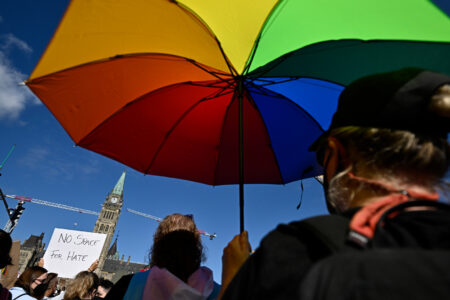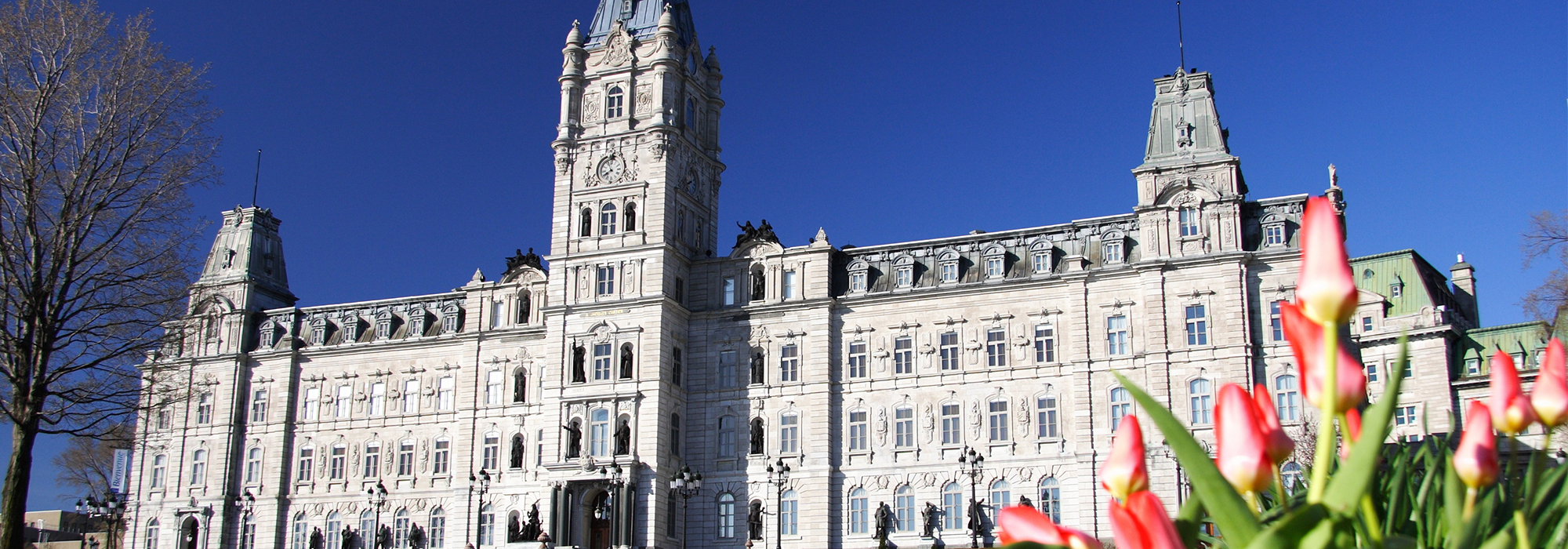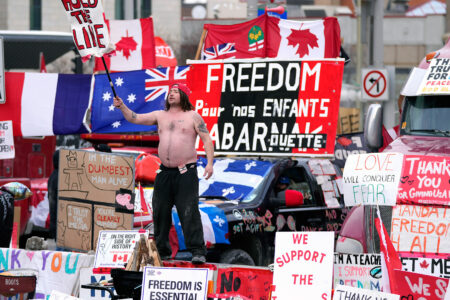
The Quebec government has introduced its promised legislation restricting visible religious imagery in the public service. In essence, Bill 21 prohibits state employees such as prosecutors, police officers and teachers from wearing religious symbols — including head and face coverings — when carrying out their civic duties. It will apply only to new public service hires, exempting existing civil servants from its provisions. The Bill, tabled in late March, follows similar legislation passed in 2017 that banned the wearing of face coverings by individuals providing or receiving certain public services.
The new law is ostensibly supported by four principles: the religious neutrality of the state; the separation of religion and the state; the equality of all citizens; and freedom of conscience and religion. But perhaps even more significantly, Bill 21 seeks to amend the Quebec Charter of Human Rights and Freedoms, the quasi-constitutional provincial statute with which all Quebec laws must comply, and which itself is subordinate only to the Canadian Charter of Rights and Freedoms. Although the Quebec Charter guarantees freedom of religion, its preamble will now include a declaration affirming the “fundamental importance” of state secularism.
In response to warnings from civil libertarians that these provisions will disproportionately target members of minority religious groups, Premier François Legault has insisted that the Bill is consistent with the views of most Quebecers that the state ought to be religiously neutral.
One could be forgiven for thinking that the main purpose of Bill 21 is to promote the state’s duty of religious neutrality. These words appear no fewer than seven times throughout the legislation, and the Bill’s title references the French concept of laicity, or the ideal that the exercise of state power ought to be divorced from expressions of religious dogma. Yet, despite its professed support for religious neutrality, Bill 21’s ban on religious symbols is fundamentally inconsistent with how this constitutional principle is actually understood in Canadian law.
Since the advent of the Charter, the Supreme Court of Canada has interpreted the Constitution as limiting the state’s jurisdiction in matters concerning religion. This does not, however, mean that the Charter banishes religion or religious expression from the public sphere. Far from it.
The Canadian principle of religious neutrality holds that governments must remain neutral on questions of religion or theology by neither favouring nor disfavouring any particular belief. In practice, this means that it’s unconstitutional for the state to instruct its citizens on what constitutes the right religion. While governments can’t be explicitly religious, they also can’t be explicitly irreligious: the state must treat religious groups equally.
In this way, religious neutrality reinforces the Charter’s guarantees of freedom of religion under section 2(a) and the right to equality under section 15. Indeed, without religious neutrality, there can be no meaningful guarantee for either of these constitutional protections. If the state can unconditionally pass laws forcing religious adherents to deny their core identity every time they step into the public square, then our society is not one in which religious minorities are respected as equal citizens.
Of course, the very idea of religious neutrality is a bit pretentious. The state can never be truly neutral on questions of religious morality, nor should it be. In a pluralistic society like Canada, governments will inevitably be forced to pursue policies that are inconsistent with some faith-based convictions, since religion itself can’t be neutral about what a good and just society looks like. As Benjamin Berger of Osgoode Hall Law School explains, “The state’s inescapable adoption of positions on such matters will…involve position-taking on matters of deep religious interest.”
Yet this is precisely why the Charter safeguards the right of religious minorities to participate fully in public life. Though religious neutrality limits the state’s theological jurisdiction, it doesn’t consign religion to private practice, nor does it justify legislation that discriminates against religious minorities. Civil servants enjoy the same Charter rights as everyone else; the suggestion that a crucifix- or hijab-wearing public employee undermines religious neutrality inherently misapplies this constitutional principle.
Photo: Shutterstock by Maridav
Do you have something to say about the article you just read? Be part of the Policy Options discussion, and send in your own submission. Here is a link on how to do it. | Souhaitez-vous réagir à cet article ? Joignez-vous aux débats d’Options politiques et soumettez-nous votre texte en suivant ces directives.








